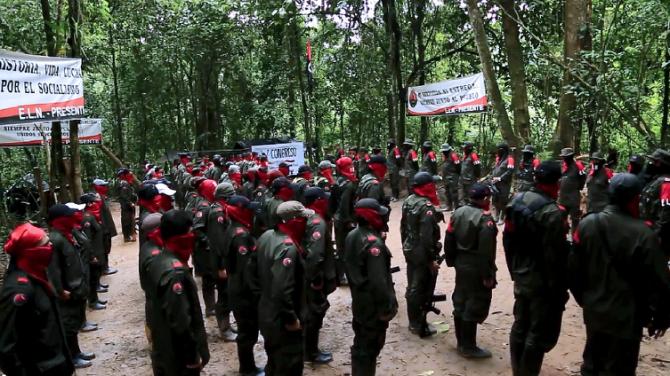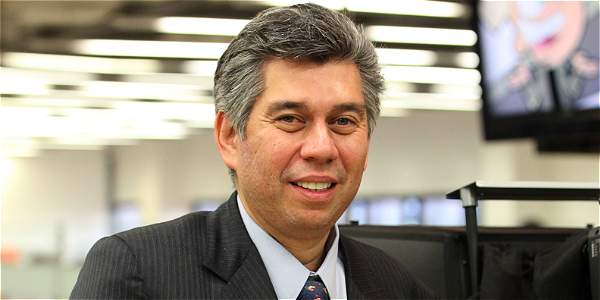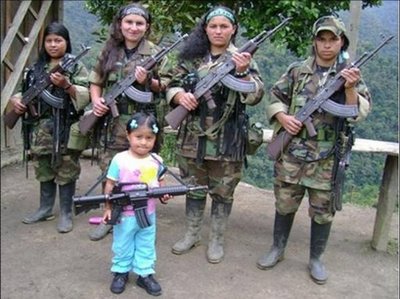The notorious E.L.N. decided that they are not going to stop kidnapping and robbing, said one of the group’s leaders last Sunday. The rebel group has been having peace talks with the government this past month hoping to end over 50 years of war. But, no resolution has been made yet.

The E.L.N. is the National Liberation Army in Colombia that fights to implement communist ideologies. With more than 2,000 army guerrillas, the E.L.N. conflict is responsible for the death of more than 220,000 Colombians. The group was originally comprised mostly of students, Catholic radicals and left-wing intellectuals. Today, the group claims to represent rural life and opposes the wealthy.
The rebel conflicts in Colombia have created a hostile environment for journalists.
Last month, two journalists were murdered in the span of three weeks. Both victims were covering the corruption beat and had been threatened a number of days before their deaths.
“These two murders have again highlighted the dangers to which journalists are exposed in Colombia. As result of the generalized impunity, journalists work in fear and the families of victims are unable to obtain justice. This must stop, and those responsible for these crimes must be held accountable,” said Claire San Filippo, head of Reporters Without Border’s America’s desk.
Journalism is described as one of the most dangerous professions in Colombia by Business Insider (2014). Since 1992, 43 Colombian journalists have been murdered. Of the deaths, only two convictions were made, according to Latin Correspondent (2014).
Of the individuals murdered, 56 percent of them were covering the corruption beat. An estimated 21 percent of these murders were perpetrated by government officials. Some 35 percent were by a paramilitary group, E.L.N. or F.A.R.C. The graphs above show the jobs the journalists held before their deaths, as well as the different beats they were covering.
Some journalists continue to work despite the risk.
Daniel Coronell was named Colombia’s journalist of the year in 2013. He works as vice president of Univision television station as well as a columnist for Semana newsmagazine.

source: eltiempo.com
“The work of a journalist is always to counter power. The power that the president wields now, that others wielded before, and to all those in power. We must approach them with a critical eye, because this is what allows society to make better decisions,” said Coronell, just after accepting his title in 2013.
In 2005, Coronell was forced to spend time out of the country because of threats on his family. Coronell and his family are safe today. Other journalists have not been so lucky.
The ongoing conflict with rebel forces has brought other Colombians into danger. Some 1,000 children have been recruited in the violent negotiations over the past three years, reported New York Times this past week. Colombian rebel groups have been recruiting and training children for combat since their creation in the 1960s.

source: worldbulletin.net
“No child in Colombia today knows what it is like to live in a country at peace,” Roberto De Bernardi, Unicef’s representative in Colombia, said in the Times’ report.
Despite its internal conflicts, Colombia is making efforts to attract more tourism. Last Wednesday, the president said that tourists will be exempt from the 16 percent sales tax when they visit Colombia. This effort is to create an incentive for more visitors to come.

source: medicaltourismmag.com
“We are no longer a risk destination but a dream destination, and prospects will get better once we finish the conflict and travel warnings end,” said president Juan Manuel Santos.
In 2014, Colombia had 2.3 million foreign visitors and then 2.5 million visitors in 2015, according to Colombia Reports.
A peace consensus with the rebel groups means Colombia will focus more on growing tourism and safety.
On February 9, the Day of the Journalist in Colombia, Reporters Without Borders asked the country’s journalists what their most precious gift would be. The consensus reply was physical safety and death to impunity.
To see a video of a Colombian guerrilla camp, click the link below.
sources:
- http://colombiareports.com/161819-2/
- http://latincorrespondent.com/2014/10/colombia-daniel-coronell-example-for-journalism/
- http://www.nytimes.com/2016/03/20/world/americas/colombian-children-pay-high-price-amid-peace-talks-un-says.html?rref=collection%2Ftimestopic%2FColombia&action=click&contentCollection=world®ion=stream&module=stream_unit&version=latest&contentPlacement=2&pgtype=collection&_r=0
- https://cpj.org/killed/americas/colombia/murder.php
- https://rsf.org/en/news/two-colombian-journalists-murdered-past-three-weeks
- http://www.nytimes.com/video/world/americas/100000004278197/colombia-farc-rebels.html?rref=collection%2Ftimestopic%2FColombia&action=click&contentCollection=world®ion=stream&module=stream_unit&version=latest&contentPlacement=5&pgtype=collection

